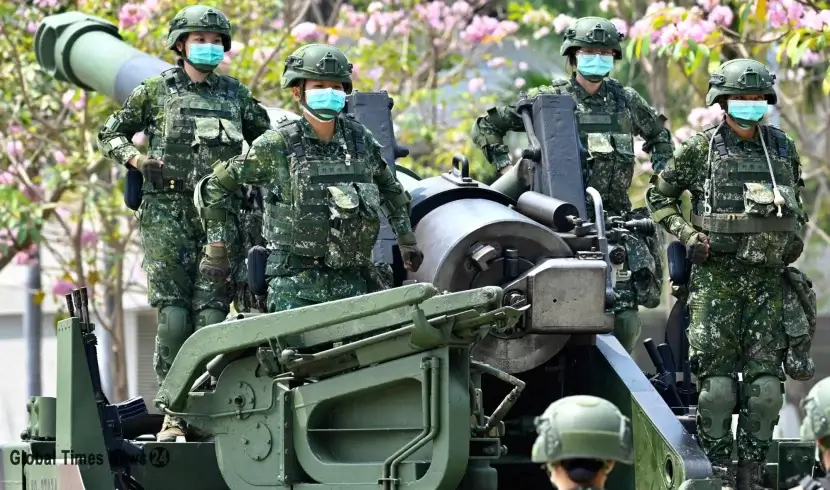Recent investigations have revealed that small amounts of explosives were concealed in pagers ordered by Lebanon's Hezbollah from a Taiwanese manufacturer, leading to a series of deadly explosions in the country. U.S. officials and other sources have indicated that these explosive devices were intentionally tampered with before they reached Lebanon.
The pagers, primarily the AR924 model produced by the Gold Apollo company in Taiwan, were modified to include explosives weighing between one and two ounces, strategically placed next to the battery. A remote activation switch was also embedded in the devices, allowing for detonation from a distance.
On Tuesday, amidst widespread chaos, the pagers received a message that was purportedly from Hezbollah leadership; however, this message activated the explosives instead. The blasts occurred around 3:30 p.m., resulting in tragic casualties, with Lebanon's health minister reporting at least 11 fatalities and over 4,000 injuries, including 400 individuals in critical condition.
According to multiple officials, the devices were engineered to detonate seconds after receiving the message. Independent cybersecurity experts who analyzed footage from the incident confirmed the explosive nature of the blasts. Mikko Hypponen, a researcher at WithSecure and a consultant for Europol, noted that the size and power of the explosions indicated the involvement of explosives beyond the pager's battery.
Reports indicate that more than 3,000 pagers were ordered from Gold Apollo, with additional claims suggesting that Israel's intelligence agency, Mossad, planted explosives in as many as 5,000 devices months prior to the attacks. These pagers were acquired by Hezbollah as a means of low-tech communication to avoid detection by Israeli forces, making this incident particularly devastating for the group.
A senior Lebanese security source confirmed that the pagers belonged to Gold Apollo, although the company stated that the devices were actually manufactured by a European company under licensing rights. The company did not disclose the name of this European entity but clarified that they were not directly responsible for the explosives.
Hezbollah leaders have denounced the explosions as a "criminal attack" orchestrated by Israel and have vowed to retaliate. The scheme appears to have been meticulously planned, with sources suggesting the plots were in the works for several months.
Some sources also revealed that the explosives embedded within the pagers could remain undetected, emphasizing the covert nature of this operation. The explosive content, estimated to be up to three grams, was said to have gone unnoticed for an extended period, further complicating efforts to safeguard against such attacks.
News ID : 3712
 Pentagon: Leaked documents pose 'very serious' security risks
World / Breaking News
Pentagon: Leaked documents pose 'very serious' security risks
World / Breaking News
 Biden: Trump and his supporters, a 'threat to American democracy'
World / Breaking News
Biden: Trump and his supporters, a 'threat to American democracy'
World / Breaking News
 China, US defense chiefs meet in Singapore
World / Breaking News
China, US defense chiefs meet in Singapore
World / Breaking News
 Hamas Claims it Killed 10 Israeli Soldiers in Southern Gaza
World / Breaking News
Hamas Claims it Killed 10 Israeli Soldiers in Southern Gaza
World / Breaking News
 Israel's coalition hanging by a thread
World / Breaking News
Israel's coalition hanging by a thread
World / Breaking News
 How Fast Can Humans Go? The fastest man-made speeds!
Technology
How Fast Can Humans Go? The fastest man-made speeds!
Technology
 Explosions in Lebanon Lead to 9 Fatalities and Over 300 Injuries
World / Breaking News
Explosions in Lebanon Lead to 9 Fatalities and Over 300 Injuries
World / Breaking News
 Why your phone battery gets worse over time
Technology / Breaking News
Why your phone battery gets worse over time
Technology / Breaking News
 US signals $1.1 billion arms package for Taiwan
World / Breaking News
US signals $1.1 billion arms package for Taiwan
World / Breaking News
 Kissinger's Diplomatic Mission to Beijing Spurs Global Speculation and Strategic Shifts
World / Breaking News
Kissinger's Diplomatic Mission to Beijing Spurs Global Speculation and Strategic Shifts
World / Breaking News